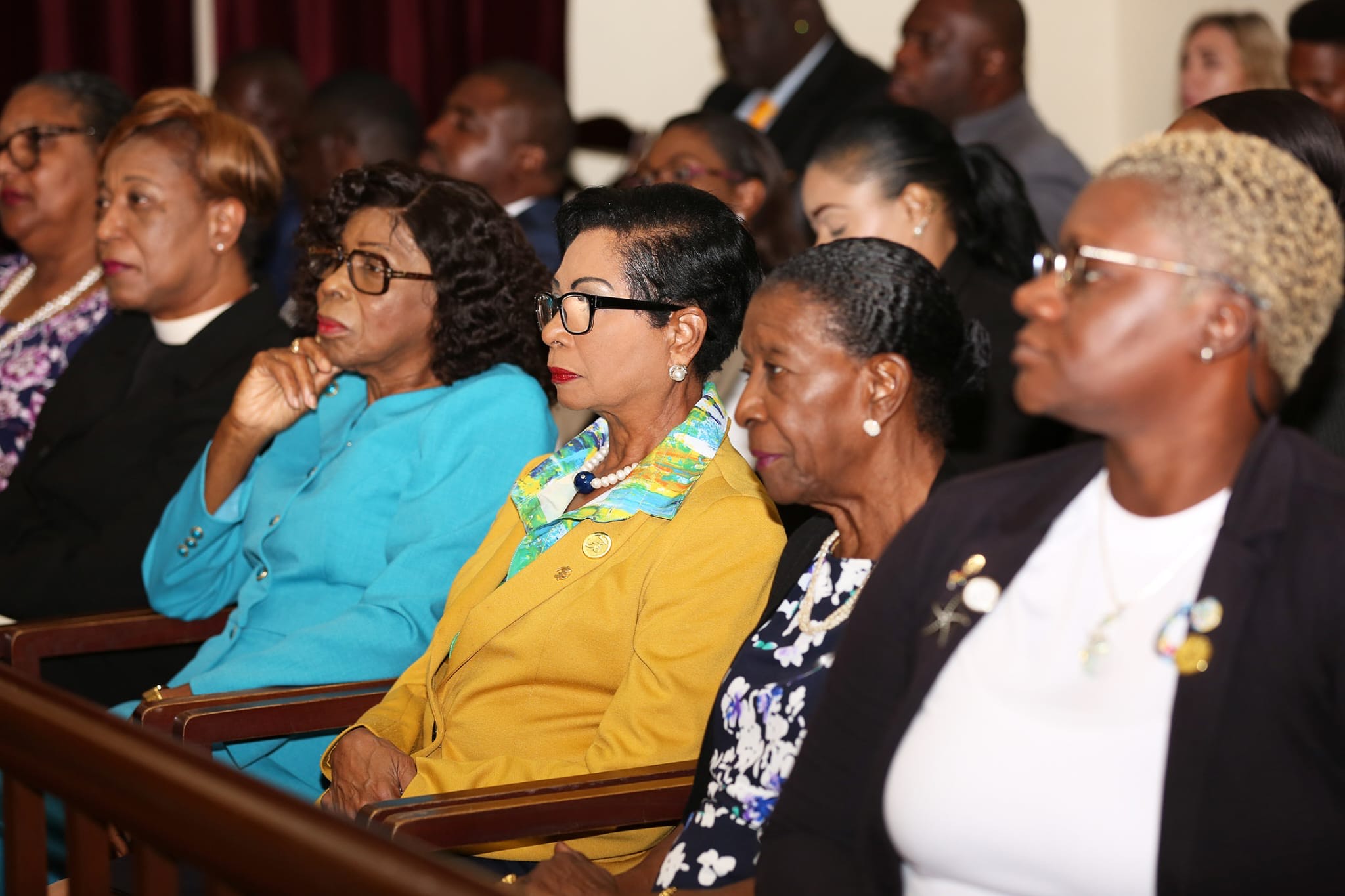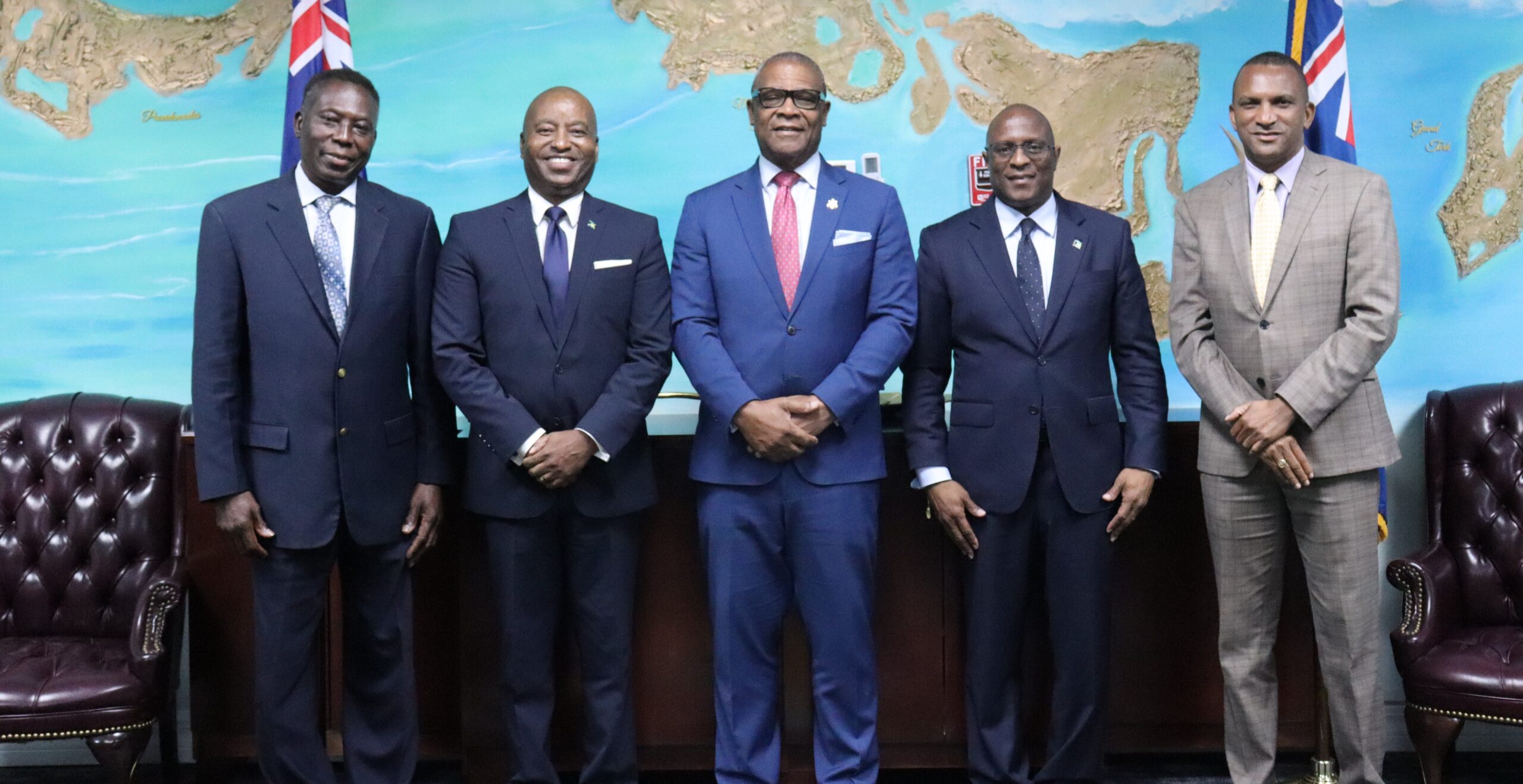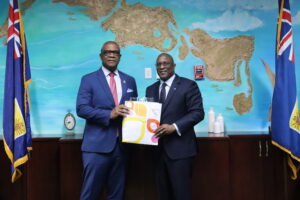Alicia Bárcena, Executive Secretary of ECLAC, and Camillo Gonsalves, Minister of Finance, Economic Planning and Information Technology of Saint Vincent and the Grenadines, led a seminar on this issue prior to the 20th meeting of the Monitoring Committee of the Caribbean Development and Cooperation Committee
November 5, 2021 – The high prevalence of non-communicable diseases in the Caribbean – such as high blood pressure, diabetes and cancer – is exacerbating the impact of the COVID-19 pandemic and hindering the subregion’s progress towards achieving sustainable development due to their multiple health, economic and social consequences, according to the authorities, representatives of international organizations and specialists participating today in a virtual event organized by the Economic Commission for Latin America and the Caribbean (ECLAC) prior to the Twentieth meeting of the Monitoring Committee of the Caribbean Development and Cooperation Committee (CDCC), to be held on Friday, November 5.
The Seminar on non-communicable diseases and their impact on sustainable development in the Caribbean was inaugurated by Alicia Bárcena, Executive Secretary of ECLAC, and Camillo Gonsalves, Minister of Finance, Economic Planning and Information Technology of Saint Vincent and the Grenadines. The moderator was Diane Quarless, Director of ECLAC’s Subregional Headquarters for the Caribbean, located in Port-of-Spain.
“Not only does the COVID-19 pandemic continue to rage in the Caribbean,” Alicia Bárcena affirmed upon emphasizing that it is “one of the subregions of the world with the highest prevalence of non-communicable diseases (NCDs).”
Data from the World Health Organization (WHO) shows that NCDs are the main cause of death in the subregion’s countries, ranging from 57% in Haiti to 83% in Barbados, she stated. In each Caribbean country, more than half of all deaths annually can be attributed to non-communicable diseases, which also contribute significantly to disability, ECLAC’s Executive Secretary warned.
The pandemic has aggravated the risks that people with non-communicable diseases face: not only do they continue to be at greater risk of dying or suffering severe illness from COVID-19 infection, they also have been affected by interruptions in health care due to services being overburdened, Bárcena explained.
In this context, the high-level United Nations representative called for accelerating vaccination efforts. The rate of full vaccination in the Caribbean amounts to 35.2%, with great heterogeneity between countries. This percentage, she indicated, is below the global rate (39.0%) and that of Latin America (47.5%).
“The entire region of Latin America and the Caribbean should strengthen production, distribution and access to medicines and vaccines. To achieve this, on September 18, ECLAC presented the Plan for self-sufficiency in health matters requested by the Community of Latin American and Caribbean States (CELAC). We are moving from design to implementation of the plan, with focal points in all the countries and various meetings planned for the coming months. We hope the Caribbean will join us,” Bárcena stated.
In his remarks, Minister Camillo Gonsalves of Saint Vincent and the Grenadines expressed appreciation for the opportunity to address the problem of non-communicable diseases at a time when all Caribbean countries are fighting the pandemic and many of their ministers and leaders are talking about climate change and the subregion’s future in the framework of the 26th Conference of the Parties to the United Nations Framework Convention on Climate Change (COP 26).
“Non-communicable diseases are responsible for 6 of the 10 main causes of death in the subregion” and they entail a heavy economic cost for governments, due to high health expenditures, as well as for people, Minister Gonsalves said. NCDs have a disproportionate impact on people living in poverty, which means that addressing them constitutes a development challenge for the Caribbean, which is also true for other phenomena such as climate change, he noted.
“Non-communicable diseases are within our control, they are preventable,” the Minister acknowledged, affirming that current policies are not effective because they are not sufficiently focused on prevention, nor do they include cross-sector and coordinated approaches.
The seminar’s first panel featured remarks by Kenneth George, Chief Medical Officer of Barbados; Fitzroy Henry, Professor at the College of Health Sciences of the University of Technology of Jamaica; Kavita Singh, Senior Research Scientist at the Public Health Foundation of India; and Francis Morey, Deputy Director of Health Services of Belize; while Simon Anderson, Professor and Director of the George Alleyne Chronic Disease Research Center at The University of the West Indies, Cave Hill Campus Barbados, acted as moderator. Subsequently, Joy St. John, Executive Director of the Caribbean Public Health Agency, led a discussion.
Participating in the second and final panel were Anselm Hennis, Director of the Department of Noncommunicable Diseases and Mental Health at the Pan American Health Organization (PAHO/WHO); Rachel Nugent, Vice President of Global Noncommunicable Diseases at RTI International; Stanley Lalta, from the Centre for Health Economics of The University of the West Indies, St. Augustine Campus, Trinidad and Tobago; and Rosa Sandoval, Coordinator of the Economics of NCDs Team at PAHO. Acting as moderator was Abdullahi Abdulkadri, an official at ECLAC’s Subregional Headquarters for the Caribbean.
The specialists called on governments to invest in a comprehensive approach to NCDs, with a focus on strengthening primary care and preventing risk factors such as an unsuitable diet, physical inactivity and tobacco and alcohol abuse. They also urged for taking growing mental health problems into consideration.
At the close of the event, Alicia Bárcena summed up what had been discussed, delivering 10 messages. First, she said, COVID-19 was a wake-up call about the importance of addressing non-communicable diseases. Because care and treatment for NCDs were reduced during the pandemic, it is urgently necessary to support the efforts of health services with innovations in telemedicine and other solutions, she sustained. She also posed the need to utilize all available tools to foster healthy lifestyles, strengthen primary health care and community-based programs, and promote food security, nutrition-sensitive social protection and support for farmers.
Bárcena further contended that it is critical to achieve greater equity in access to essential medicines, reduced waiting times and reduced out-of-pocket payment burdens for people, while also expanding partnerships with academic institutions in the Caribbean and reinforcing inter-agency collaboration. The idea of using taxes on unhealthy products is also generating interest and should be carefully weighed using a sound socioeconomic analysis, she added.
To procure a resilient post-pandemic recovery, Caribbean countries need a healthy and productive workforce, the Commission’s Executive Secretary stressed. The GDP of the Caribbean dropped by 7.7% in 2020 as a result of the pandemic, compounding the high rates of indebtedness faced by the subregion’s countries. ECLAC estimates that in 2021, the Caribbean’s GDP will only grow by 4.1%.
“By taking an economic approach to the analysis of the NCD problem, we hope that policies aimed at promoting health and preventing disease will not only be cost-effective but that they may also be cost-saving, thereby making government health expenditures more effective,” Bárcena emphasized. This is a problem for society as a whole, which must be addressed beyond the health field. “Interventions on non-communicable diseases are within our reach. You can count on ECLAC.”
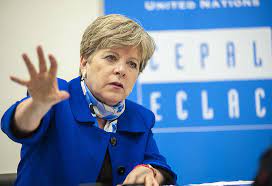

 Crime5 days ago
Crime5 days ago
 Caribbean News1 week ago
Caribbean News1 week ago
 News1 week ago
News1 week ago
 News6 days ago
News6 days ago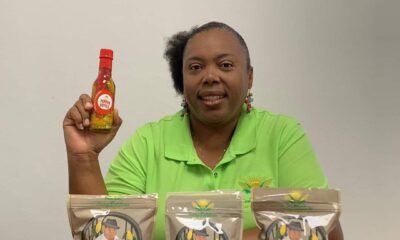
 News5 days ago
News5 days ago
 Caribbean News6 days ago
Caribbean News6 days ago
 Bahamas News5 days ago
Bahamas News5 days ago
 Crime5 days ago
Crime5 days ago



